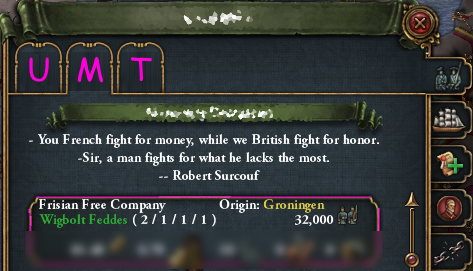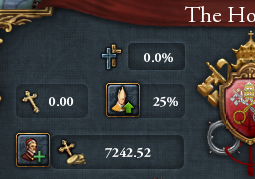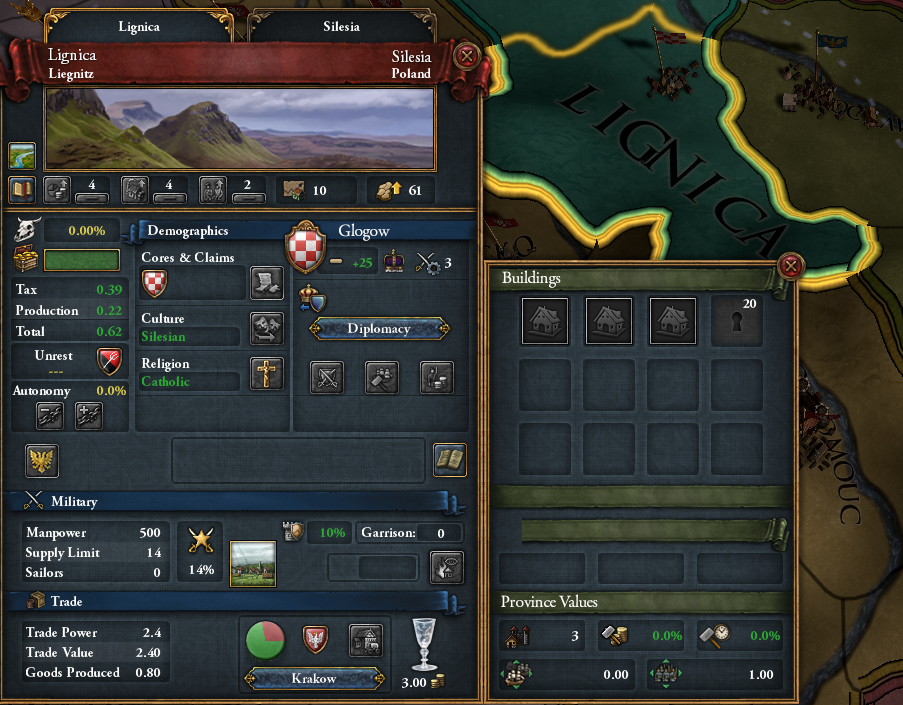Hello all and welcome to today's dev diary for EUIV. Over the past eight dev diaries, our content design team @neondt , @Caligula Caesar and @Ofaloaf have been serving up a plethora of content that will be coming your way in the upcoming European Update and its accompanying expansion. There's certainly been plenty of it (and I'm told even more to come) but today I'm here to update you on the development plans for EUIV leading up to said expansion, and to tease the new mechanics to come.
As we laid out early on in the year, we intend to take our time with the upcoming European update. We have previously said that we aim to release said update late this year, but this is now being moved into 2020 for a variety of reasons, not least of all that we have many ambitions for this update, and want to give it the development time it deserves.
Unpleasant news for some, I've no doubt. I've been seeing comments along the line of wanting the expansion released as soon as possible from people excited about the content updates when we haven't even touched on the mechanical ones yet. While the expansion release is certainly a long time away, we believe that this is the best way to deliver the quality that EUIV deserves.
In the meantime, as this is an unprecedentedly long time between releases for the game, we will be releasing a free update to the game post-summer. This will be an update with the 64-bit support and bugfixes, but will not contain any of the things we've been discussing around the European Update. We'll have more details on this once the July holiday season is over.
Ah yes, July, the dreaded month where everything in Sweden shuts down, including game development studios. Devs are already entering vacation mode, so there won't be much news coming from us over the month, however I believe @neondt has threatened that he may make a few more small content Dev Diaries as he defies the Swedish Vacation Standards.
So what about after July? Well, as you've no doubt been aware, we have been focusing heavily on the content that's in our upcoming European release, but not so much the mechanics. Dev Diaries will start delving into said mechanics after the Summer Holidays and we have some meat to delve into there. In Dev Diaries of past, we have openly talked about design ambitions for Mercenaries and Estates, as well as our desires to “Make Catholicism and the Pope feel like a force to be reckoned with, rather than just another colour of Christianity and country”. We're going to dive into these and share what we've been doing to make these aspirations a reality.
Of course, I don't want to leave you for Summer with worlds alone, so here are three completely contextless screenshots from the development version of the game for all your speculative needs.



Have a wonderful Summer everyone. Regular Dev Diaries shall return on Tuesday August 6th.
As we laid out early on in the year, we intend to take our time with the upcoming European update. We have previously said that we aim to release said update late this year, but this is now being moved into 2020 for a variety of reasons, not least of all that we have many ambitions for this update, and want to give it the development time it deserves.
Unpleasant news for some, I've no doubt. I've been seeing comments along the line of wanting the expansion released as soon as possible from people excited about the content updates when we haven't even touched on the mechanical ones yet. While the expansion release is certainly a long time away, we believe that this is the best way to deliver the quality that EUIV deserves.
In the meantime, as this is an unprecedentedly long time between releases for the game, we will be releasing a free update to the game post-summer. This will be an update with the 64-bit support and bugfixes, but will not contain any of the things we've been discussing around the European Update. We'll have more details on this once the July holiday season is over.
Ah yes, July, the dreaded month where everything in Sweden shuts down, including game development studios. Devs are already entering vacation mode, so there won't be much news coming from us over the month, however I believe @neondt has threatened that he may make a few more small content Dev Diaries as he defies the Swedish Vacation Standards.
So what about after July? Well, as you've no doubt been aware, we have been focusing heavily on the content that's in our upcoming European release, but not so much the mechanics. Dev Diaries will start delving into said mechanics after the Summer Holidays and we have some meat to delve into there. In Dev Diaries of past, we have openly talked about design ambitions for Mercenaries and Estates, as well as our desires to “Make Catholicism and the Pope feel like a force to be reckoned with, rather than just another colour of Christianity and country”. We're going to dive into these and share what we've been doing to make these aspirations a reality.
Of course, I don't want to leave you for Summer with worlds alone, so here are three completely contextless screenshots from the development version of the game for all your speculative needs.



Have a wonderful Summer everyone. Regular Dev Diaries shall return on Tuesday August 6th.

